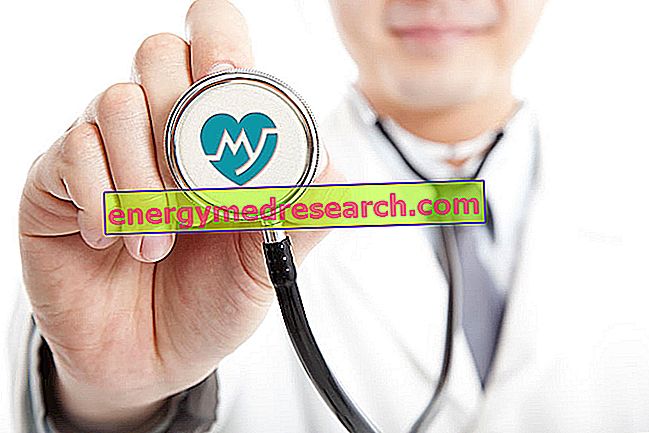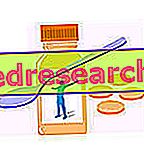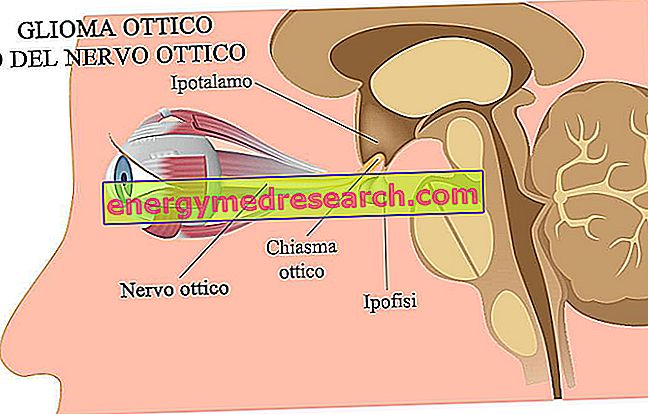Definition
The term "hypotension" is synonymous with "low blood pressure": this is a condition in which arterial blood pressure falls below 90 mmHg (for systolic) and 60 mmHg (for diastolic). Although its dangerousness cannot be compared to that of hypertension, even hypotension can cause more or less serious symptoms, such as general malaise, tiredness and dizziness.
Causes
Hypotension can be a consequence of one or more factors: drug abuse (diuretics, anti-parkinson, tricyclics, viagra), endocrine changes (hypo / hyperthyroidism, Addison's disease, hypoglycemia, diabetes), anaphylaxis, anemia, diet lacking vitamin B12 and folic acid, dehydration, pregnancy (the circulatory system expands, so the pressure undergoes a decrease), cardiac dysfunctions (bradycardia, heart failure, heart attack), bleeding, septicemia, hypovolemic shock.
Symptoms
Hypotension can be recognized by observing a set of symptoms: anxiety, increased sweating, headaches, thought disorders, shoulder, neck, chest, back pain, irritability, blurred vision, fainting, less urinating than the normality, dizziness.
Diet
Information on hypotension - drugs for the treatment of hypotension is not intended to replace the direct relationship between health professional and patient. Always consult your doctor and / or specialist before taking Hypotension - Drugs for the Treatment of Hypotension.
drugs
Although hypotension, as mentioned, is less severe than the opposite condition (hypertension), it is necessary to report the symptoms to your doctor as soon as possible, to avoid complications such as fainting and frequent dizziness. However, in general, it is possible to consider hypotension as a positive condition, since it can prevent some cardiovascular diseases.
In non-pathological hypotension - that is, that comes in the absence of underlying diseases - the organism ensures an adequate blood supply, and is able to avoid fainting; in this case, the use of drugs is not recommended, as is the implementation of some medical treatments.
Since hypotension registers a peak of "sick" during the summer period, it is understandable that an adequate water and salt intake in the diet is indispensable.
Useful tips to prevent and treat hypotension:
- wear graduated elastic stockings, especially in the case of varicose veins in the context of hypotension, useful to avoid blood stagnation in the legs: this promotes the return of blood to the heart, increasing arterial pressure
- avoid dehydration
- possibly take intravenous fluids
In cases of pathological hypotension, it is sometimes necessary to take drugs to increase arterial blood pressure:
Erythropoietin : the drug promotes the increase of erythrocytes in the blood: the increase of red blood cells not only determines an increase in blood pressure, but is also indicated for the treatment of anemia, which is often related to hypotension.
- Epoetin (eg Eprex Alfa, Neo-Recormon, Binocrit, Abseamed): it is a recombinant human erythropoietin, used in the treatment of erythropoietin deficiency anemia, even in the context of hypotension. The dosage and method of administration are of medical competence.
Steroids : steroid administration is indicated for the prevention of loss of minerals from the body. Steroids are useful for increasing blood pressure.
- Fludrocortisone (eg Florinef): it is a synthetic mineralocorticoid drug, used in therapy both for the treatment of Addison's disease and to increase blood pressure in the context of pathological hypotension. Even if the dosage is accurately established by the doctor, approximately, he expects to take an oral dose of drug varying from 0.05 to 0.2 mg every 24 hours. Consult your doctor.
Vasopressors : by promoting vasoconstriction, vasopressor drugs increase blood pressure values. Furthermore, these drugs increase blood flow to the brain and help reduce the symptoms of hypotension.
- Midodrine (eg. Gutron): approximately, it is recommended to take 10 mg of oral active, three times a day. Doses should not be taken less than three hours apart. Alternatively, the drug can be taken in a single 20 mg dose orally: the dosage is indicated for the treatment of hypotension in healthy adults. The dose can increase up to 30 mg a day. Consult your doctor.
- Norepinephrine or noradrenaline (eg Noradr Con FN): it is a catecholamine indicated to increase arterial pressure in the context of hypotension. It is recommended to start therapy with 2-4 mcg of drug per minute. The maintenance dose should be established by the doctor based on the severity of the condition and the patient's response to treatment; although, in general, this dose varies from 1 to 12 mcg per minute.
- Phenylephrine (eg Isonephrine, Fenil CL DYN, Triaminic FLU, Nasomixin CM) the drug belongs to the pharmacological class of sympathomimetics (Alpha-adrenergic agonists): the administration of these drugs induces an increase in blood pressure values, decreasing the accompanying symptoms hypotension. Taken subcutaneously or intramuscularly, the drug is generally prescribed at a dose of 2-5 mg, every 1-2 hours, as needed. The drug can also be taken as intravenous boluses: 0.2 mg every 10-15 minutes, as needed. For intravenous infusion, start anti-hypotensive therapy at a dose of 100-180 mcg per minute. The maintenance dose can vary from 40 to 60 mcg per minute. Alternatively, take 0.5 mcg / kg per minute. Consult your doctor.
- Ethilephrine (eg Effortil): the drug is available in the form of drops (each gram of product corresponds to 15 drops, and is equivalent to 7.5 mg of active ingredient), 5 mg tablets, 25 mg capsules or solution for injection ( 10 mg) and is used in therapy for the treatment of orthostatic hypotension. As an indication, it is possible to take 5-10 drops, 3 times a day; or 2 capsules a day; alternatively, one tablet, three times a day; or 1 ampoule subcutaneously / intramuscularly / intravenously, every 2 hours. Consult your doctor.
Antidiuretic hormone : given that hypotension can create nocturia, the administration of the antidiuretic hormone can decrease the need to urinate during night rest.
- Vasopressin (eg Pitressin): the drug is not marketed in Italy due to its rather serious side effects.
- Desmopressin (eg Minirin / Ddvap): it is an analogue of vasopressin, able to carry out the same therapeutic activities but with a longer duration of action and with fewer side effects. Indicatively, take 0.2-0.6 mg of active, once a day, before going to bed.
Anti-parkinson drugs: this category of drugs promotes an increase in blood pressure and decreases the symptoms associated with pathological hypotension. The choice of a drug rather than another depends on the severity of hypotension.



